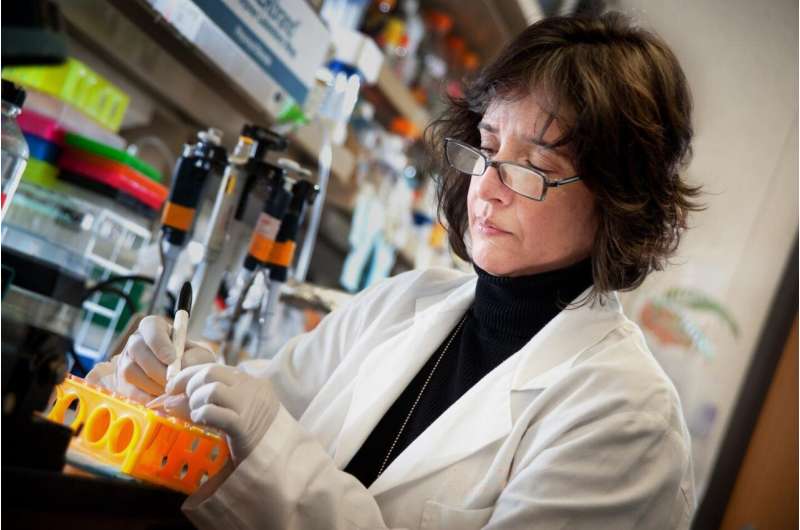Inherited mutation found among Brazilians increases cancer risk

Scientists at St. Jude Children's Research Hospital alongside global partners are studying a common TP53-R337H variant found among people of Brazilian descent. The researchers found that a variant in the tumor suppressor gene XAF1 increases cancer risk when combined with the inherited TP53-R337H mutation. The work appears as an advance online publication today in Science Advances.
"We expect these results to have a significant impact on public health," said corresponding author Emilia Pinto, Ph.D., of St. Jude Pathology. "Once clinicians know what variants to look for, they will know how to better manage those patients with higher cancer risk."
A finding 20 years in the making
More than 20 years ago, St. Jude researchers led by Raul Ribeiro, M.D., identified the TP53-R337H inherited variant among Brazilians. Pinto and her colleagues later identified TP53-R337H as a founder mutation, one introduced to Brazil during its colonization. While rare in the general population, TP53-R337H is common in Brazil. It is found in 1 out of every 300 Brazilians.
"The TP53-R337H mutation does not explain the entirety of cancer risk," said senior author Gerard Zambetti, Ph.D., of St. Jude Pathology. "Variation among individuals with TP53-R337H can lead some to develop several forms of cancer, some to develop a single cancer and others to never develop cancer at all."
From their whole genome sequencing study, the researchers identified a variant in the tumor suppressor gene XAF1 in a subset of TP53-R337H mutation carriers. Individuals who have inherited both the XAF1 variant and the TP53-R337H mutation are at a greater risk of cancer than those who have only the TP53-R337H mutation.
TP53 mutations are prevalent in individuals with rare pediatric adrenocortical carcinoma. However, TP53 mutations are a prominent factor in many other types of cancer. The knowledge that XAF1 modifies TP53 may fuel further research into whether this target can become the basis of novel treatment strategies.
Finding helps fine-tune public health approach
St. Jude researchers studied the causes of this variation through whole genome sequencing of individuals of Brazilian ancestry. The partnerships forged through St. Jude Global were key to obtaining the samples necessary to do this work.
Led by the Department of Global Pediatric Medicine, St. Jude Global has formed the St. Jude Global Alliance, which includes programs in the Asia-Pacific, Central and South America, China, the East and Mediterranean, Eurasia, Mexico and Sub-Saharan Africa.
"This study would not have been possible without the collaboration of our partners around the world," said author Carlos Rodriguez-Galindo, M.D., St. Jude Department of Global Pediatric Medicine chair. "These results will have an impact on public health in Brazil but are also important for the pediatric cancer community at large."
More information: Emilia M. Pinto et al,XAF1 as a modifier of p53 function and cancer susceptibility, Science Advances 24 Jun 2020, DOI: 10.1126/sciadv.aba3231



















